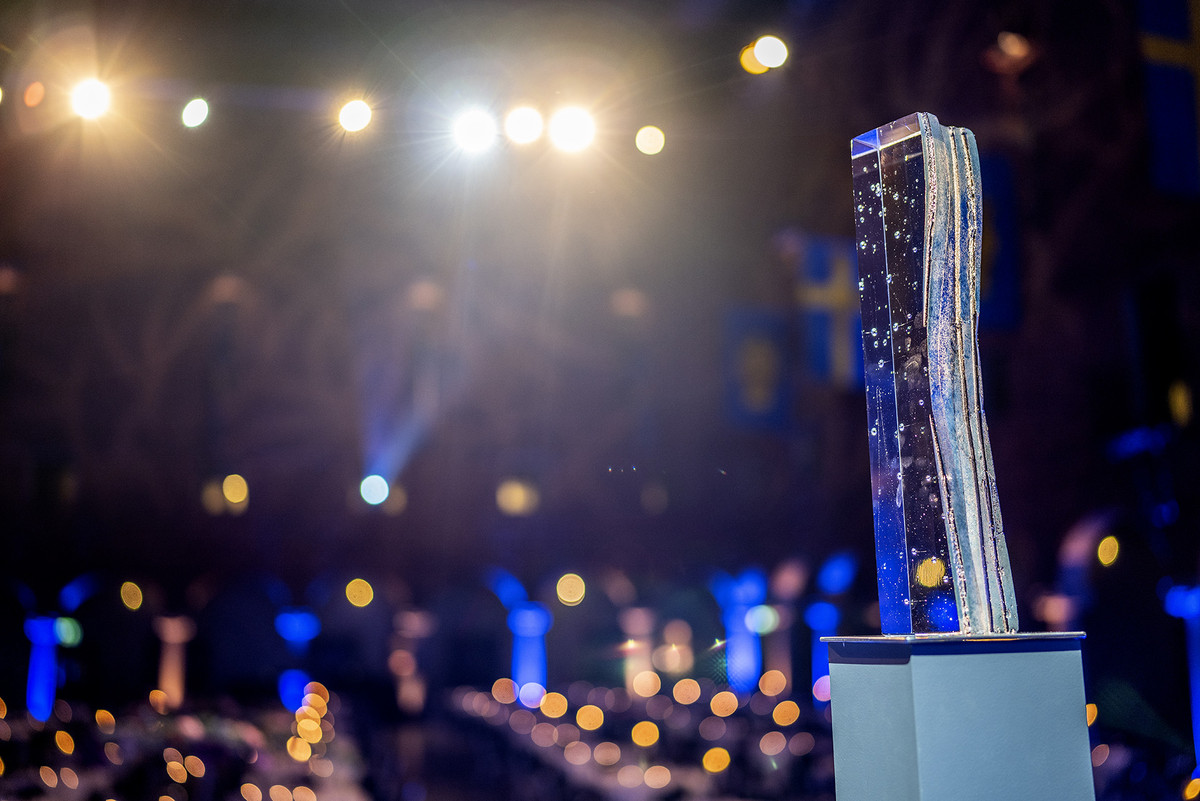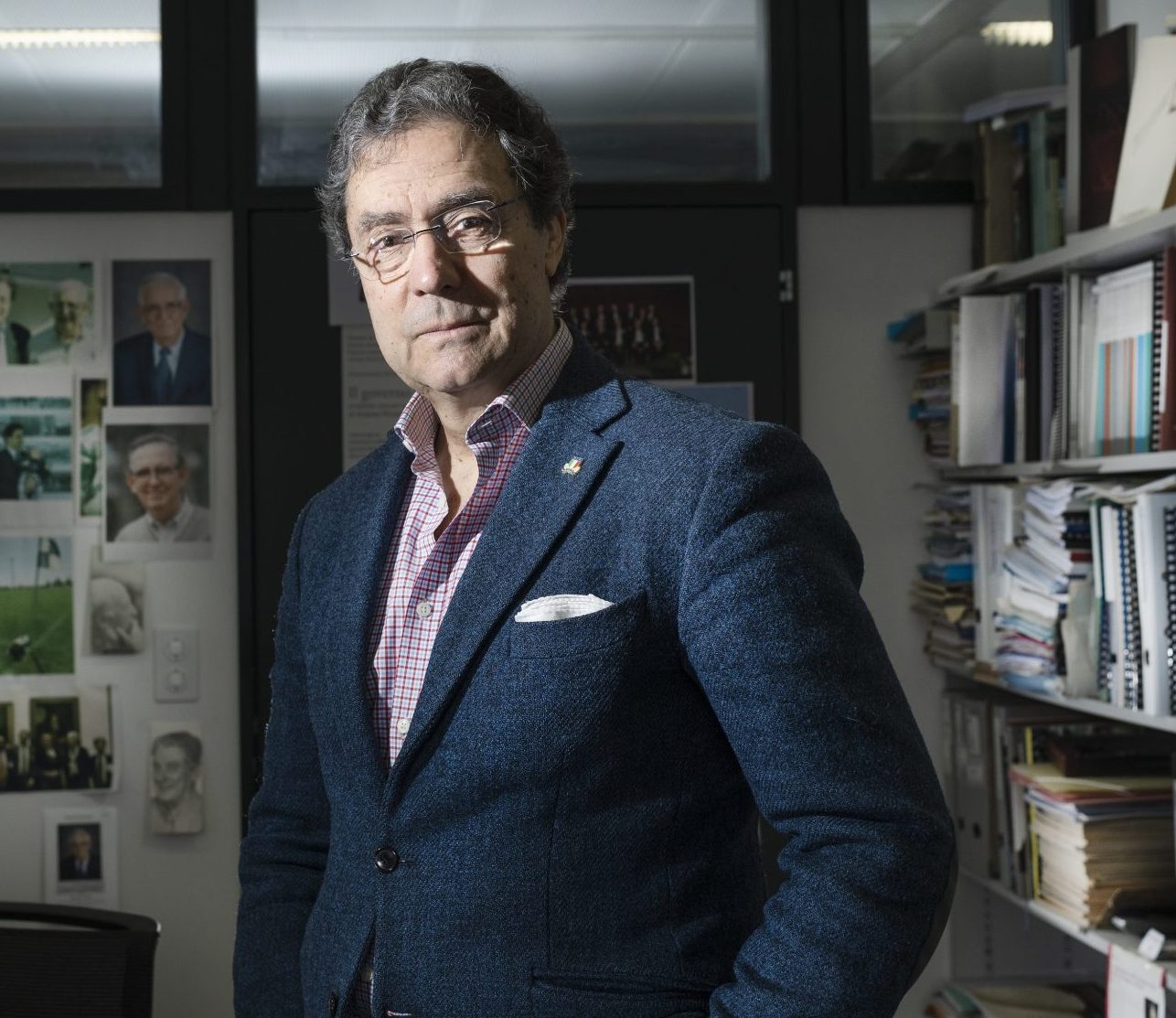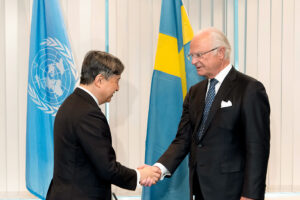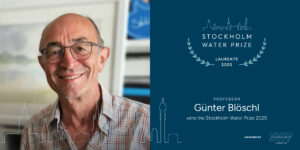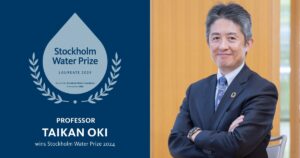5 questions to Stockholm Water Prize Laureate Andrea Rinaldo
Prof Andrea Rinaldo is the 2023 Stockholm Water Prize Laureate and describes himself as a water man through and through. Here he speaks about what it was like to grow up in Venice, what everyone should know about water and what the Prize means to him.
Congratulations, what does it feel like to win the Stockholm Water Prize?
I am humbled and very grateful, for many reasons. It is an enormous honour. Giorgio Parisi, who got the Nobel Prize in physics two years ago, said that the Prize made people listen to him. If that would be the legacy of my Stockholm Water Prize, I would be delighted, because I happen to be opinionated, on matters of social distributive justice, ecosystem services, and what is reflected in water. I would be delighted if I could have a say.
What would you like everyone to know about water?
We’re living through a paradigm shift where the water issue has exposed the contradictions of contemporary thought. What is resilience, what is development? We now have a much better understanding of water resources, like rivers, and can evaluate costs and benefits of development but also of ecosystem services. That should challenge our thinking.
At the same time, we have the highest levels of inequality ever, and that should also lead to a discussion about distribution. My research has focused on understanding different natural systems so that we have the tools to predict and prevent for examples biodiversity loss or disease. But this doesn’t happen by itself, the tools must be used. Often this is not happening because we have the highest levels of inequality ever, with 80 percent of the wealth concentrated in the hands of the 20 percent richest. So, I’m advocating for public policies especially around water, especially now since we can make solid predictions on a number of causes.
You are awarded for groundbreaking research that has transformed several academic fields, including hydrology, hydrogeomorphology and epidemiology. For example, you have studied how rivers self-organize. Why is that so important?
My Laboratory has showed how river systems self-organize into dynamically accessible optimal states – fractal networks endowed with universal features. When seen as the substrate for ecological interactions, those features allow for novel quantitative assessments of the natural capital and for a paradigm shift on the joint roles of chance and necessity in how nature works across water landscapes. The discovery made it possible to describe in a new way how the fluvial landscape provides “ecological corridors” for species, populations, and pathogens.
This has many real-life applications. To address water pollution and water contamination, it is essential to understand how solutes and pathogens move through the landscape. To protect biodiversity, it is crucial to stem invasive species, which requires knowledge about how they travel and settle. And to combat waterborne disease, decision-makers need to understand how pathogens survive and spread in water environments and how human mobility affects the demography of disease in space and time.
You call yourself a “water man” – why is water so important to you?
I grew up in Venice in Italy and my father was an hydrological engineer, so maybe it is not so surprising. But what was crucial for my choice of career was the big flood in Venice in 1966, when I was 12 years old. For two days, we were stranded without electricity or heating while the tide kept rising. That made me understand how fragile this wonderful city really is and I felt I must do something about it.
What is your relationship with the Stockholm Water Prize and World Water Week?
I have been collaborating with previous Laureates and was in Stockholm together with Ignacio Rodríguez-Iturbe, when he was awarded the Prize in 2002. Attending the ceremony was a fantastic experience. Ignacio passed away last October and I miss him sorely. He was a long-time, dearest friend of mine, we worked together for 35 years or so. Gedeon Dagan, Peter Eagleson, and Wilfried Brutsaert are (or were) good friends and also role models. They are towering figures in our fields, so I am very humbled and honoured to the extreme by joining their club. World Water Week holds a special place in my heart and I look very much forward to traveling to Stockholm.
About the Laureate
Lives in: Padua, Italy, and Lausanne, Switzerland.
Titles: Professor of Hydrology and Water Resources at the École Polytechnique Fédérale de Lausanne and at the University of Padova.
Family: Married since more that 40 years to Maria Caterina Putti, a paediatric hematologist-oncologist in Padua. They have three children (Daniele, Carlotta and Tobia) and two grandchildren (Mario and Adriana Pelloso).
Fun fact: Andrea Rinaldo was on Italy’s national rugby team in the 1970s and is currently a member of the Board of Directors of the European Professional Club Rugby in Lausanne.
The Stockholm Water Prize is the world’s most prestigious water award. Learn more about the history of the Prize, the trailblazing laureates, and how you can nominate your water heroes.
Learn more about the Prize